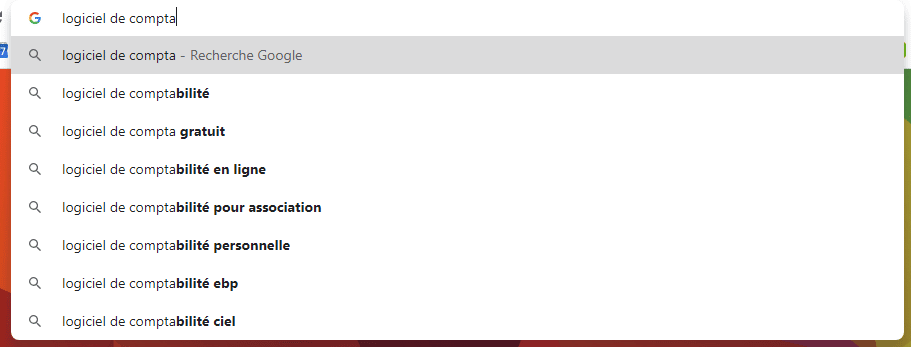Keywords, flagship assets for SEO, can also become penalizing when they are poorly used. Especially if they find themselves on many pages of the same website. We then speak of cannibalization of keywords.
Result: search engines are lost in your content and no longer know which positions on the duplicated keywords. You may see a less priority page in pole position, to the detriment of a more qualitative article. Worse still: you can lose positions on all the pages that cannibalize each other.
So how can you avoid your keywords to set off and Choose the right keywords To keep?
1. Identify the cannibalization of keywords
The first step to avoid the cannibalization of keywords is to identify the keywords that are problematic and the content incriminated.
Technique 1: via Google's “Site” command


Go to the Google site order to do a search.
Tap: Site: yoursite.com + keyword
You will then obtain the pages referenced on these requests. Check that you do not have priority content that is faced with a less important page. If this is the case, there is a potential cannibalization of keywords.
Be careful not to see cannibalization where there is none. It is normal for several pages to go back when you do this research. Just make sure that each page targets a different keyword. In our example: “SEO trends”, “SEO tool”, “Google SEO criteria” are different subjects from the SEO theme.
Technique 2: via the “Performance” section Google Search Console
Go to the “Performance” section of Google Search Console, then click on “Requests” to choose the keywords to check.
Select the keyword, then click on the “Pages” section. You will see the optimized links on this expression.
In the example below, we will check if the request ” SEO keywords »Grinds a cannibalization:


By clicking on it, then on “page”, we see that several articles are positioned on this keyword. But we see that only one really generates traffic and that the others are targeting long-dragged keywords.


Analyzing the keywords that generate cannibalizations allows you to recover the content concerned, while informing yourself about the expressions that you must stop optimizing.
2. Decline content by intention
When it comes to search engines, users are guided by four main objectives:
- Information : these Internet users have a specific question or want to learn more about a certain subject;
- Navigation : the intention is to visit a particular website;
- Transaction : the user is here to buy a product or a service;
- Commercial : Here, the intention is to convert, in the near future, but the user first uses the web to do in -depth research.
To avoid cannibalization, adapt the same subject for these four intentions. For example, around the keyword ” Accounting software », Decline the requests:
- Choose a accounting software
- Accounting software [marque]
- Buy accounting software
- What is the best accounting software?
3. Work the semantic universe of keywords
In order not to use the same keywords on different pages, opt for synonyms, variants and related expressions. Use the lexical field of targeted requests to avoid cannibalization, which multiplies the entry doors to your website.
Please note: Google has a great understanding of synonyms! Avoid too similar words or sentences. To determine the semantic universe of a keyword, let google complete your expressions.
Just choose a main keyword and place it in the search bar. The search engine automatically provides a list of related subjects:


You can also select a request and check the “associated searches” at the bottom of the page:


4. Use redirects 301
There Redirection 301 Allows you to redirect a page, permanently, to a new location.
For example, you created a new very similar version of an article published years ago. Analyze in depth which URL has the greatest authorityTHE Volume of incoming linksthe keywords positioned, etc. In general, it will be the old content.
Redirect it to the new page. This allows users to find what they are looking for and send positive signals to search engines. Indeed, the redirected URL will transfer its authority to the destination page.
5. Merge similar content
If you want to produce content on the same subject and with the same keywords, the ideal is to concentrate all your efforts in a single URL. This avoids having pages in competition with each other. Only one of them earns all authority. In addition, you offer very high value content to your readers, which is excellent for your image. As for the “old” pages, use the 301 redirects to bring them to theURL main.
The cannibalization of keywords is a blow to the authority of a website. So take the time to identify it and reorganize your content. In the future, remember to work on Lexical field of keywordsmerger similar content and decline your articles or pages by intention.
And if you need a boost to improve your natural referencing, post an ad on Coder.com !
